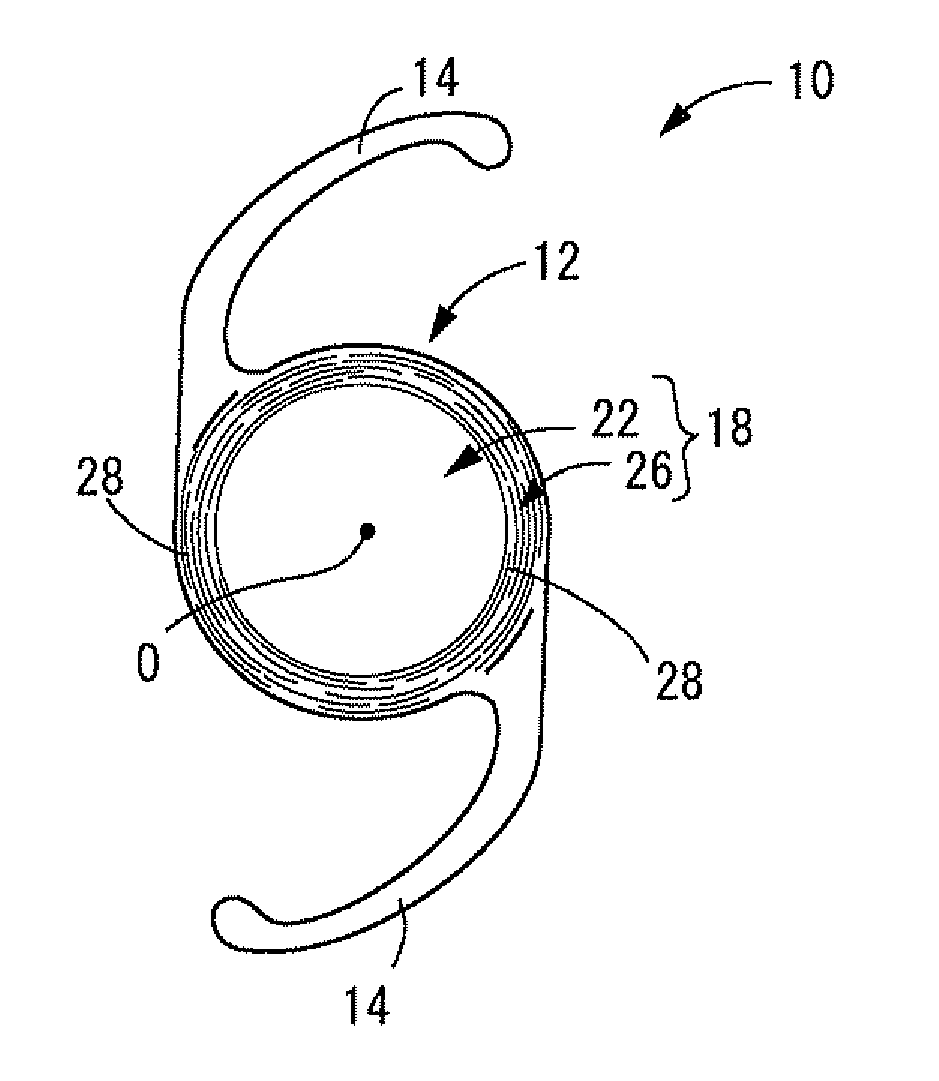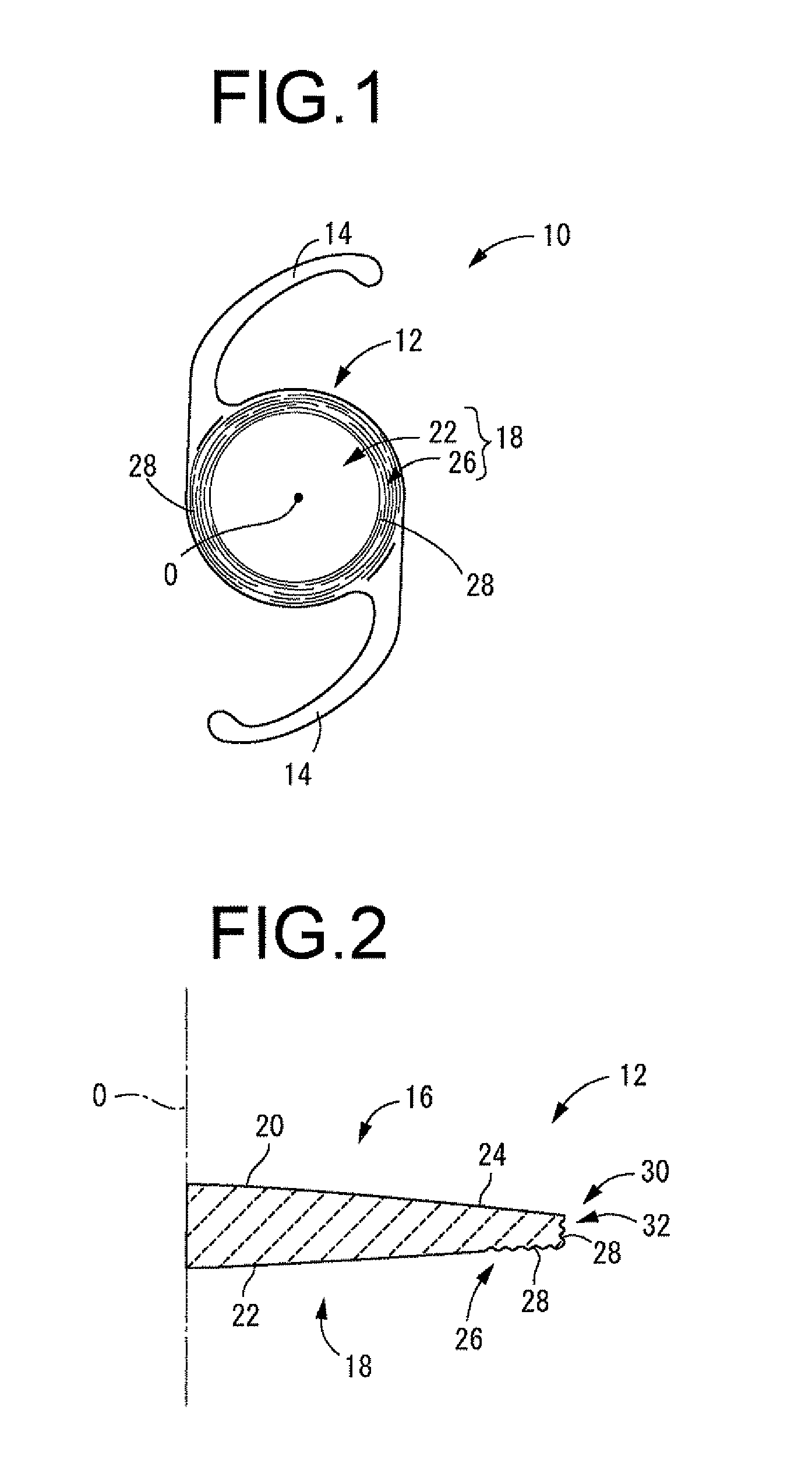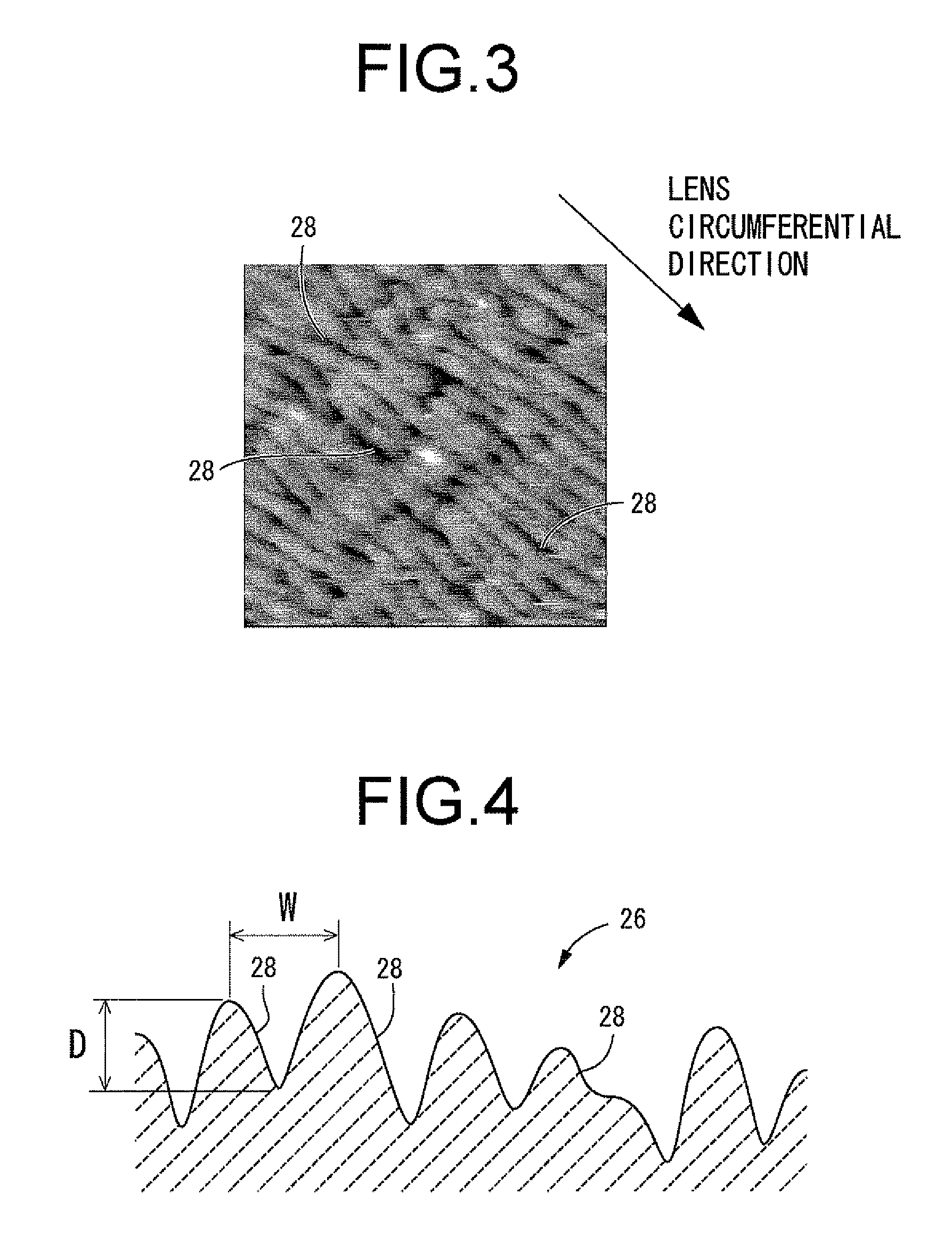Intraocular lens and manufacturing method thereof
a manufacturing method and lens technology, applied in the field of intraocular lenses, can solve the problems of difficulty in folding the lens, thicker optical parts, and subsequent complications of secondary cataracts
- Summary
- Abstract
- Description
- Claims
- Application Information
AI Technical Summary
Benefits of technology
Problems solved by technology
Method used
Image
Examples
examples
Tests carried out for the purpose of demonstrating the technological advantages afforded by the intraocular lens and manufacturing method in accordance with the present invention are presented below as Examples. Naturally, the disclosure in these Examples should not be construed as limiting the present invention in any way.
Plates corresponding to the intraocular lens according to the present invention, endowed with periodic patterns according to the manufacturing method of the present invention (periodic machined plates) and plates corresponding to intraocular lenses of conventional design lacking periodic patterns (non-periodic machined plates) were prepared and were subjected to comparative tests regarding the direction of cell growth in the respective plates.
To produce the periodic machined plates, a plate die of mechanical construction grade carbon steel material (S45C) was prepared, and a femtosecond laser shaped to a line by a cylindrical lens was directed onto the surface of ...
PUM
| Property | Measurement | Unit |
|---|---|---|
| length | aaaaa | aaaaa |
| length | aaaaa | aaaaa |
| length | aaaaa | aaaaa |
Abstract
Description
Claims
Application Information
 Login to View More
Login to View More - R&D
- Intellectual Property
- Life Sciences
- Materials
- Tech Scout
- Unparalleled Data Quality
- Higher Quality Content
- 60% Fewer Hallucinations
Browse by: Latest US Patents, China's latest patents, Technical Efficacy Thesaurus, Application Domain, Technology Topic, Popular Technical Reports.
© 2025 PatSnap. All rights reserved.Legal|Privacy policy|Modern Slavery Act Transparency Statement|Sitemap|About US| Contact US: help@patsnap.com



